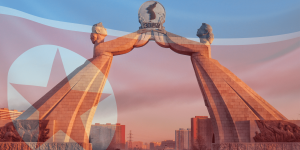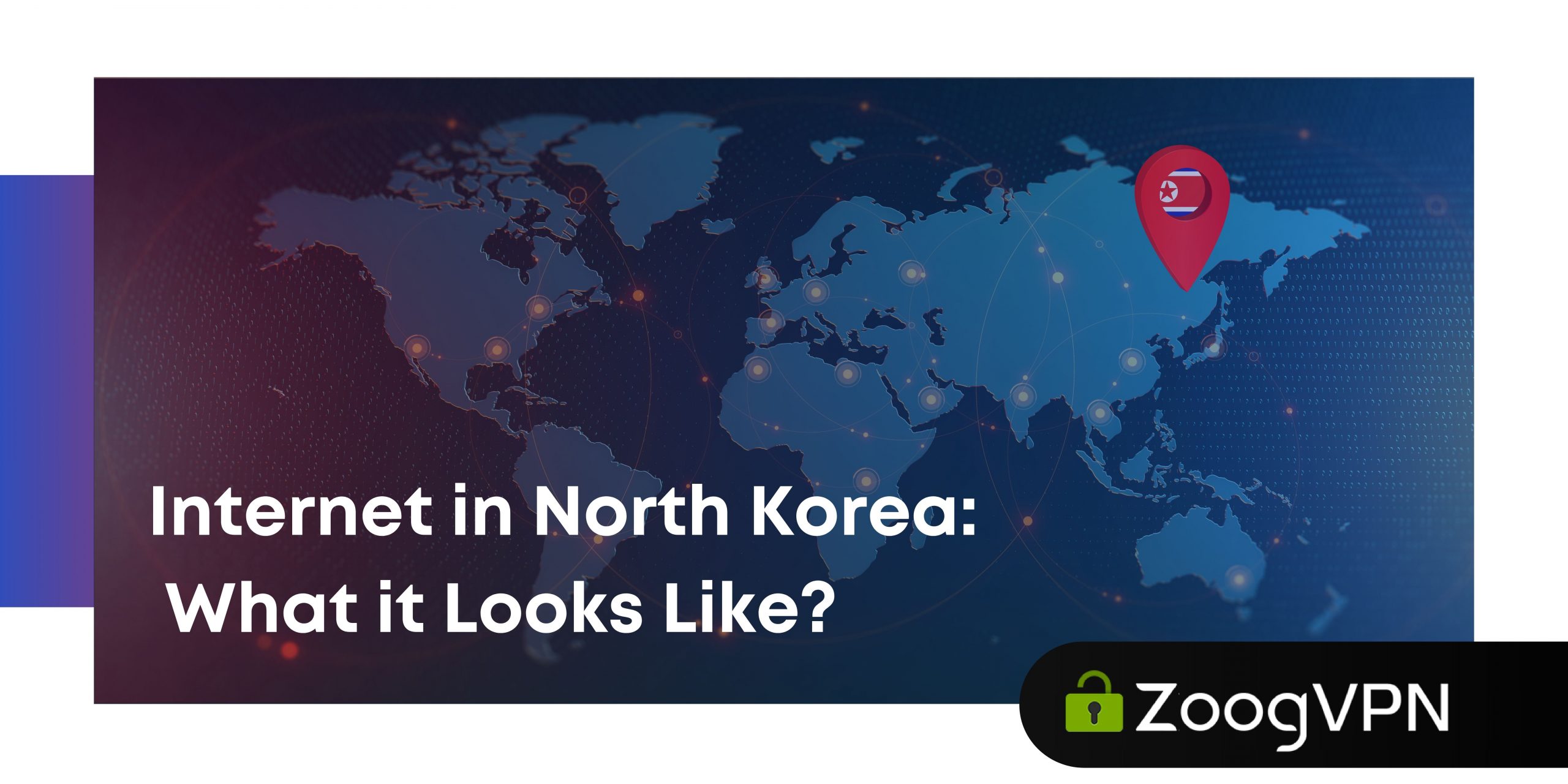Can you even imagine living in a country where internet connectivity is equal to impossible? For 21st century, it sounds bizarre! According to Wired, a South Korea-based human rights organization completed new research for Successful Corean Reunification (Pscore), disclosing the issue of limited circumstances for those who managed to get online in North Korea. The report reveals a days-long process for getting internet access that lasts several days. Following this, individuals are supervised by monitors who sit beside them during their online activities, granting approval every five minutes. Despite these measures, the content that is accessible online offers limited insight into the world beyond North Korea’s borders.
Since the mid-1990s, the government of North Korea has carefully advanced its information and communication technology, leading to the creation of a domestic intranet. While North Korea maintains a modest online activity, there are indications that the country is carefully allowing certain social elites to take advantage of the internet as a means to increase economic progress. A prominent defector has suggested that North Korea is likely to gradually expand, internet access in the near future, albeit in a controlled manner.
Internet Access in North Korea
It is not a secret that North Korean online surveillance is critically paranoid about their citizens. The process of owning a computer requires permission from local government authorities, and all personal computers are registered with the police, analogous to the registration process for firearms. According to Vox, owning fax machines privately is prohibited, and obtaining authorization at a high level is necessary to send even a single fax. Moreover, possessing pirated DVDs of South Korean TV dramas is considered highly illegal, with individuals caught during routine police checks facing lengthy sentences in labor camps. These strict controls illustrate the extreme limitations likely placed on internet access in North Korea.
However, North Korea possesses a very limited internet connection, a concept that likely remains unfamiliar to most of its population. Kwangmyong, meaning “bright star” in Korean, is North Korea’s authorized and sanctioned intranet. It resembles the internet from around 1994, with many users connecting to it using old-fashioned dial-up or computer labs. This closed network operates on pirated Japanese versions of Microsoft software and mimics the appearance of the Internet but is not the actual Internet. It features basic email and browsing tools that are limited to a curated selection of “sites” copied and censored from the real internet.
The Elite Core Who Can Use Internet

There is an elite group of individuals who are considered privileged in North Korea and have access to the real internet, which is forbidden to the simple citizens. The number of individuals in North Korea with actual internet access is estimated to be only a few thousand, the tiny core includes individuals from government – most of them are top government officials.
The scale of North Korea’s internet users is incredibly limited, evidenced by the country having only 1,024 IP addresses for its population of 25 million people, in contrast to the United States, which boasts billions of IP addresses for its 316 million people. While it is impossible to refer to the exact count of internet-connected devices, it is clear that the number is exceedingly small.
Many of North Korea’s internet connections are funneled through a single line that travels from Pyongyang through the mountainous northern region into China, where it links up with China’s state-run telecommunications agency, Unicom, connecting North Korea to the outside world. Essentially, North Korea operates largely within China’s Great Firewall.
Additionally, North Korea also appears to have routed some internet connections through satellite-based systems, including a partnership with a Hong Kong-based satellite network managed by China’s state-owned internet provider. There are also persistent rumors of a second, secretive North Korean T1 line that provides high-speed access for the most privileged officials, using Chinese IP addresses.
North Korea’s greatest challenge to restrict their population from any possible internet connection could soon face significant changes. This upcoming satellite, anticipated to launch in 2024, will enable direct communication with smartphones, allowing for two-way text messages, calls, and finally the long-awaited internet access from anywhere without requiring a specific handset or satellite dish. Users will only need an account with a carrier that has collaborated with the satellite service and a clear view of the sky.
Why North Korea Permits Internet
The key question here is “why?” This question holds even more importance, than who is permitted to access the real internet in North Korea. It can reveal a great deal about the underlying structure and organization of the country.
Broadly speaking, there are three types of internet connections linking North Korea with the outside world. This breakdown of web access reasons reveals the country’s main priorities.
- The primary connection is used for propaganda. North Korea has transitioned from text-only state media rhetorics to complicated social media campaigns, including YouTube videos that praise Kim Jong Un and criticize American imperialism. While North Korea’s claim of having “hundreds of millions” of supporters abroad, who are unfounded, it still has a small but significant base of supporters in South Korea and among the ethnic Korean minority in Japan. Additionally, North Korea aims to reach its separatists abroad, although the pure sincerity of its propaganda and its strong impact on international tensions makes it a debatable subject.
- The second reason “why” North Korea wants to regulate Internet access is for strategic hacking purposes. In recent years, the country has expanded its cyberwarfare capabilities by creating a powerful army of highly skilled hackers. These cyberattacks are a form of asymmetric warfare that allows North Korea to influence and malfunction the Internet, particularly by targeting institutions in the United States and South Korea. This creates a significant threat, signaling that North Korea can digitally attack back if prompted. In addition, reports indicate that North Korea has engaged in various online fraud activities to generate much-needed hard currency for its government.
- Another, more nuanced reason for Internet access among North Korea’s elite is the dramatic contrast in lifestyle and awareness compared to the rest of the population. While most North Koreans exist in a tightly controlled propaganda bubble, isolated from outside information, the country’s top elite live in a different reality. They indulge in forbidden luxuries, including movies, books, Internet access, and illegal goods imported for their enjoyment. This lifestyle not only maintains their loyalty to the regime, but also provides them with the necessary knowledge of the outside world. It helps to effectively run the country and perpetuating the existing oppressive system.
Is VPN the Best Choice for North Korea?
Already getting the understanding of what is going on inside the country and how repressive it is for the citizens, limiting and controling each possible online activity, let the question of VPNs hang in the air. Let’s explore if VPN helps in overcoming these strict governmental rules and how much it is possible to get the access to unlimited worldwide content.
Unfortunately, none of the currently existing VPN providers cannot be used in North Korea. The amount of available IP addresses varies around the number of 1K, and they are extremely controlled and inaccessible. VPNs might be helpful for North Korean Elite Core who having that accessed to Internet. Though, it doesn’t offer any guarantee, that North Korean population may have the access to the worldwide Internet.
About ZoogVPN
ZoogVPN stands out as a top-notch VPN provider, offering strong privacy protection and effective hiding of browsing history from internet service providers. Thanks to state-of-the-art encryption, it protects user data from interception, and its strict no-logs policy ensures that internet activity is kept private. With its user-friendly interface and fast connection speeds, ZoogVPN is a great fit for all users. In addition, it helps people in regions with limited access by providing fast access to blocked content using obfuscation technology. Even the free plan is sufficient for various tasks, including streaming. When considering VPN providers, give preference to those with strong security features such as bank-level encryption and advanced hashing technologies. ZoogVPN is the best in this aspect, with industry-leading 256-bit encryption and a 2048-bit hash key to ensure maximum privacy and protection from cyber threats.
Get your most reliable VPN for accessing the limited content – ZoogVPN!



























